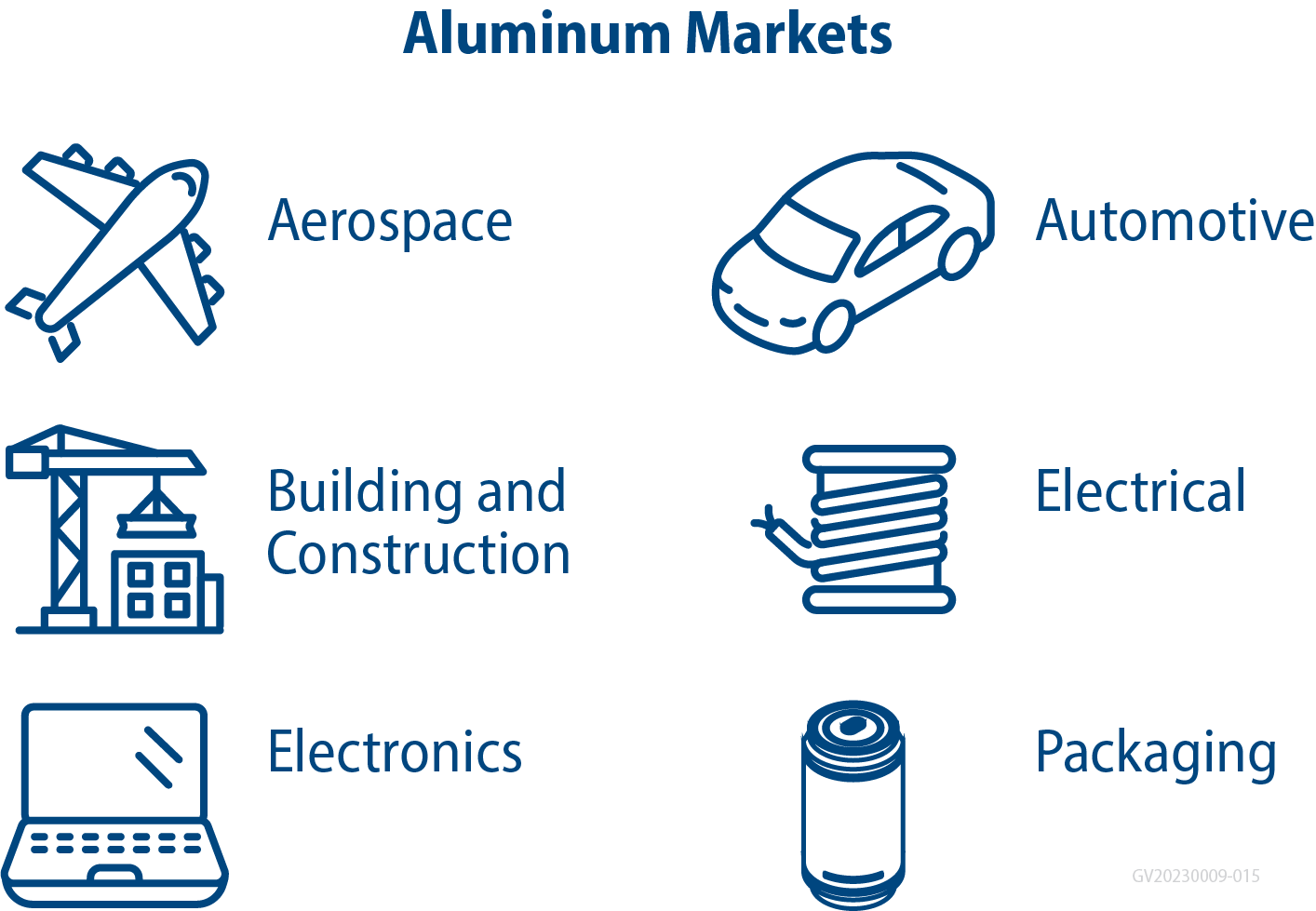By: Brady Godbey, executive director, business development and James Young, director, process engineering
Aluminum, the hardworking, light-weight metal, is everywhere in modern life
– helping form vehicles, planes, consumer electronics, beverage cans,
building materials and even electrical transmission and distribution
materials. This important metal is experiencing a renaissance as consumers
demand more sustainable options, from electric vehicles to beverage
packaging.
With its infinite recyclability, aluminum supports the circular economy and
the quest to reduce waste and consumption of finite resources. The focus on
the circular economy, as well as maturing disruptive technologies, are
further reducing aluminum’s environmental footprint and enabling a green,
low-carbon product.
Conventional aluminum is produced by refining bauxite ore into alumina
(aluminum oxide) and smelting it at high temperatures into aluminum.
Refining produces a toxic red mud that requires long-term storage and
management, and smelting requires considerable power and carbon dioxide
emissions. In fact, refining and smelting account for more than
90%
of aluminum production’s carbon dioxide emissions.
Start-up company
Aluminum Technologies
has the potential to decarbonize this industry with a completely different
approach that uses clay and other easily available feedstocks. Instead of
the energy-intensive refining and smelting process, Aluminum Technologies
has developed the Carbo-Chloride Reduction (CCR) process that uses aluminum
chloride to produce low-carbon aluminum metal.

CCR results in 70% reduced greenhouse gas emissions and enables carbon
emissions to be captured, rather than released into the atmosphere. With
one-third lower energy consumption than the conventional process and less
expensive feedstocks, the CCR process has considerably lower operating
costs. The smaller footprint and numerous efficiencies also reduce capital
expenditures. Instead of the red mud waste, CCR’s byproduct is a valuable
building material used to strengthen concrete.
Fluor has been a strategic partner with Aluminum Technologies since 2016 in
advancing their proprietary technology. In collaboration with Aluminum
Technologies’ lab-scale testing, Fluor has helped develop the concept for
full commercial scaling, including simulations of the entire process,
designs for the critical pieces of process equipment and techno-economic
optimization. Pilot-scale work is in process to prepare for
commercialization of this high-quality, near-zero-emission aluminum product.
As disruptive technologies mature, secondary production from end-of life,
recycled aluminum products is rapidly scaling up. Secondary production
reduces carbon intensity by
95%
compared to primary production. Fluor is currently working with three major
aluminum producers on projects in the United States and Middle East that
encompass the entire process from melting end-of-life aluminum products to
creating finished products.
Further gains towards carbon neutrality and the circular economy can be
achieved through renewable energy sources and operational design
efficiencies in minimized and recycled water, waste and plant footprints.
While sustainable packaging is driving the current demand for aluminum,
aluminum is also reshaping the future of the automotive industry. As
battery-powered vehicles continue to grow in popularity, automotive
manufacturers are turning to aluminum because its lightweight properties
reduces energy and battery demands, with aluminum content
expected
to grow by around 100 pounds per vehicle from 2020 to 2030.
As the world is aiming for a low carbon, fully circular economy, aluminum is
part of the solution due to its endless circularity. With industry-leading
technology experts, unmatched project execution expertise and its long
history in the aluminum value chain, Fluor is helping aluminum producers
deliver a green, low-carbon product.